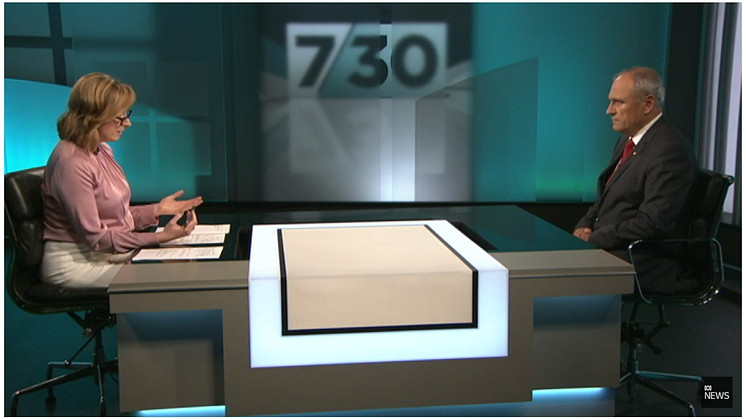
Blog post -
Crisis comms case study: Outgoing Chairman of the National Australia Bank
Australia's top level enquiry into its banks (officially known as the Royal Commission into Misconduct in the Banking, Superannuation and Financial Services Industry) has resulted in the Chairman and the CEO of the National Australia Bank quitting – and an interesting study in crisis communications.
Outgoing Chairman Dr Ken Henry's interview on ABC Television is noteworthy for senior business leaders for the following points.
- Show up – Dr Henry could have declined to be interviewed. The fact that he agreed to face the music counts in his favour. One way or another he was going to receive criticism for the failings at NAB. But no one can accuse him of running away, or hiding behind a written statement.
- Use straight-forward language – The last thing victims of your actions want to hear is "corporate speak" and euphemisms. Dr Henry's comments were noteworthy for their simplicity, short sentences and use of common vernacular. On one occasion he slipped and referred to "delivered the wrong outcomes". Almost predictably, this phrase was then criticised by commentators below the YouTube clip.
- Contrition – Building on the previous point, Dr Henry acknowledged he should have handled his appearance in front of the Royal Commission differently: "I understand the criticism. I did not perform well". By saying this, he denied presenter Leigh Sales the opportunity to ask him whether he could have performed better. He exposed his personal vulnerability with "I can't tell you how often I have relived that appearance". That may be cold comfort for victims of the way the banks had treated them. But the alternative would have been a stoic defence of his appearance at the commission, and that would have gone down even worse. When speaking during a crisis, keep your ego in check.
-
Be sorry ...and look and sound like it – In line with the previous point, Dr Henry's voice and posture were the opposite of stoic, indignant or defensive. He looked and sounded defeated. For a reporter, it's difficult to go on the attack when your interview guest is already down for the count.

- Say sorry – Dr Henry said "sorry" four times during the 9-minute interview. Not "apologise", but "sorry". A small but important difference, but also a contentious one. Your corporate legal counsel might object to you saying sorry because it admits liability. But in practise, victims are more likely to sue when the party that has wronged them does not show remorse. Many corporate communications chiefs I have talked to about this agree victims are less likely to sue when you say sorry sincerely. If anything, be clear what you are sorry for.
- Stay factual – Even as he accepted responsibility, Dr Henry didn't accept the premise behind every question. He continued to stand up for himself and the bank where he thought he needed to. This is a balancing act, because even as you want to show you are sorry and contrite, you cannot let falsehoods spread. But be careful not to come across as too clever or defensive.
Overall, considering the alternatives, Dr Henry did well. Obviously, it would have been better for NAB to have treated its customers better to begin with. But that's the nature of crises. It's too late for "would haves" and "could haves" when you are in the moment and fronting the TV cameras.
Of course, the ultimate in crisis communications would be that neither he nor CEO Andrew Thorburn, who also quit, will collect million-dollar severance payments as part of their resignations.
